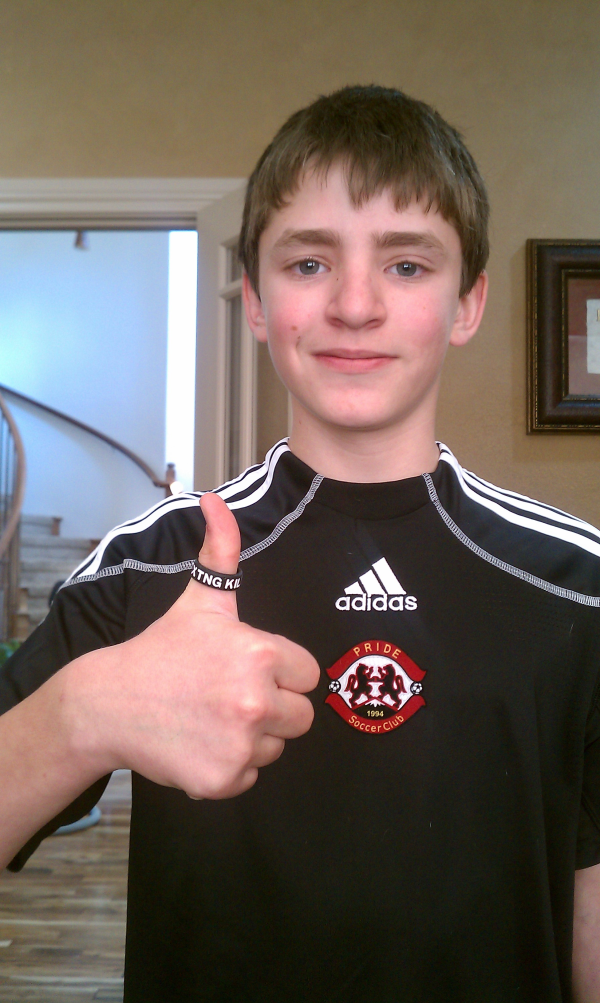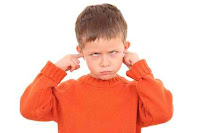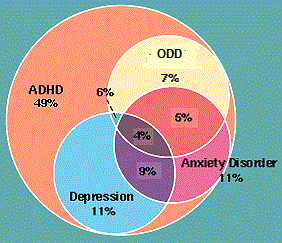Question
I have an 11 year old boy diagnosed with high functioning autism. He started middle school and we're having a very difficult time. Academically he is starting to settle in and is in advanced classes with a B average. However, he is having behavior issues particularly in settings like lunch time, PE, etc. He is being bullied but nothing is being done. The school says they don't see any bullying. Last week the PE teacher left the class to "free play" allowing my son to use metal pole to hit a tennis ball. A large boy (150lbs, my son weighs 60) hit my son in the face with a dodge ball knocking his glasses off (this same child has continuously teased and taunted by son all year), my son ran after him (of course rod still in hand) and there the story gets murky depending on who you talk to - the teacher was still no where around. My son had a skinned up elbow and bruising, apparently so did the other child - not confirmed. The teacher admitted he saw my child with the pole but didn't intervene. Now the school is trying to kick my son out. We have an IEP that might help but this is charter school (still state funded). Anyone with any suggestions?
Answer
 A number of moms & dads have discovered that their kids with High-Functioning Autism (HFA) or Asperger's (AS) are being bullied, and that a lot of the time this is leading to different types of "exclusion" for their youngster. So, as well as the trauma and upset of being bullied - the chances are that the youngster is facing sanctions at the school as well.
A number of moms & dads have discovered that their kids with High-Functioning Autism (HFA) or Asperger's (AS) are being bullied, and that a lot of the time this is leading to different types of "exclusion" for their youngster. So, as well as the trauma and upset of being bullied - the chances are that the youngster is facing sanctions at the school as well.
Bullying is an bad problem with any youngster, but the needs of a youngster on the autistic spectrum make this even worse. The lack of understanding of social cues, difficulties in communicating the problems to others, interests and hobbies that often seem a little "goofy" and make the youngster an easy "target" - to name but a few.
As we all know, the multi-sensory and often very hectic nature of schools can be difficult enough for kids on the autism spectrum - so they can really do without having to contend with the extra "attention" of playground bullies.
Obviously, it is important to ensure that your youngster has some kind of feedback loop to a trusted person so that any signs of bullying can be picked up. Whether this is verbal, through some kind of symbol or PECS board, or more creative like "puppet talk" for youngsters, it needs to be crystal clear for the youngster what is and what isn't acceptable - and then what they should do about it.
This is easier for things like physical bullying - as the more subtle types of verbal bullying can be more difficult to explain. But generally your youngster's behaviors will be a key to something being not right, and then you have the [often difficult ] task of working out what is happening from there.
This is easier for things like physical bullying - as the more subtle types of verbal bullying can be more difficult to explain. But generally your youngster's behaviors will be a key to something being not right, and then you have the [often difficult ] task of working out what is happening from there.
If you do have the ear of your youngster's teacher, it is worth raising this issue with them and finding out what mechanisms they have in place for your youngster to communicate if they are being bullied. There is a useful "bullying worksheet" [see below] that you can use to look at the issues around bullying with your youngster.
Bullying is sadly something that all moms & dads with a "special needs" child need to think about. This involves looking at different ways in which you can monitor him/her to check if something is going on so that you can take action.
Often times, the child with HFA or AS does not even know that he's the victim of bullying. He may simply assume that's how kids treat other kids. Thus, be sure to educate your child on this subject. Start by sharing the following worksheet with him or her:
Often times, the child with HFA or AS does not even know that he's the victim of bullying. He may simply assume that's how kids treat other kids. Thus, be sure to educate your child on this subject. Start by sharing the following worksheet with him or her:
BULLYING WORKSHEET—
Here is a list of some of the ways other kids might act around you. Read each act. Is the child being a friend or not? Or are you just not sure? Remember, a friend would be kind to you. If the other child is being mean to you, they are not being a friend, no matter what they say.
A kid in your class at school:
• Asks to sit next to you at lunch, but then hides your lunch when your back is turned and won’t give it back when you tell him the joke is over.
• Asks you to take your clothes off so he can see you naked and says “if you were a real friend, you’d be willing to do what I ask. It’s no big deal.”
• Let’s you be part of his circle of friends as long as you do his homework for him every day, even when you’re tired, because “you’re so much better at it than I am,” while he sits around chatting with his friends.
• Says “hey, let’s be friends,” and begins to play with you, but every time his buddies come around, he acts like he doesn’t know you and says things to make the other kids laugh at you.
• Says “that’s my seat” at lunch and tells you to get out of it, when no one has assigned seats at lunch.
• Says he’ll be your friend for a dollar.
• Says he’s thirsty and asks you to buy him a soda from the store. When you buy it, he says “thanks, you’re a real friend. Tomorrow I’ll buy the sodas.” And tomorrow he buys you one.
• Says he’s thirsty and asks you to steal a soda for him from the store to help him out. When you steal it, he says “thanks, you’re a real friend.” He keeps hanging out with you, but asks you to steal things here and there, from time to time, for him.
• Says he’s your friend, plays with you, and then asks to borrow a dollar, promising to pay it back tomorrow (and he does pay it back).
• Says you can only be in my club if you pick up all these sticks alone while the rest of us watch you. When you do it, he and the other club members sit around telling you what to do and laugh at you. They said the sticks were for a fort, but no fort is ever built.
• Says you can only be in my club if you pick up all these sticks with me, so we can build a fort together. He then joins you picking up the sticks, and builds a fort with you.
• Says you can’t be in the club because it’s for teenagers and you’re only 9.
• Says you can’t be in the club because your name is Michael.
NOTE: If the other kid does any of these things listed above - he is NOT being a friend. He or she will have to earn your trust back before you should trust him/her again.
NOTE: If the other kid does any of these things listed above - he is NOT being a friend. He or she will have to earn your trust back before you should trust him/her again.
Highly Acclaimed Parenting Programs Offered by Online Parent Support, LLC:
==> How To Prevent Meltdowns and Tantrums In Children With High-Functioning Autism and Asperger's
==> Parenting System that Significantly Reduces Defiant Behavior in Teens with Aspergers and High-Functioning Autism
==> Launching Adult Children with Asperger's and High-Functioning Autism: Guide for Parents Who Want to Promote Self-Reliance
==> Teaching Social Skills and Emotion Management to Children and Teens with Asperger's and High-Functioning Autism
==> Parenting Children and Teens with High-Functioning Autism: Comprehensive Handbook
==> Unraveling The Mystery Behind Asperger's and High-Functioning Autism: Audio Book
==> Highly Effective Research-Based Parenting Strategies for Children with Asperger's and High-Functioning Autism
____________________
Do you need the advice of a professional who specializes in parenting children and teens with Autism Spectrum Disorders? Sign-up for Online Parent Coaching today.
COMMENTS:
• Anonymous said… Been there.... Done that.... As a parent of as child on the spectrum and a special education worker I totally get this. Lunch and PE are non structured times and two of the hardest times for even typical kids. If you feel the school isn't listening to your concerns I recommend getting an advocate. You can even find them for free. Watch the schools tune change.
• Anonymous said… I moved my son to a school that listens to children. Made an incredible amount of difference.
• Anonymous said… I'd be inclined to switch schools
• Anonymous said… I'd go and observe for yourself. Volunteer in the lunch line or recycling duty..or whatever gets you a glimpse into his day. Then go to principal w concerns. Hopefully the district has a peer buddies program in place or something similar.
• Anonymous said… Is there a possibility of going to a computer room or supervised play area for that time. My son does this as well as the library and he no longer gets bullied.
• Anonymous said… It's really a bigger effort for autistic/aspergers children that needs to be addressed with the teaching universities. I took E C-4(which is up to 4th) and had to stop before I could start my internships due to my now 10 year old aspergers daughter's b...See More
• Anonymous said… Problem still doesn't go away.....is a big change which can be stressful in itself.
• Anonymous said… Same here in UK. But my son's new school go above and beyond and train staff in all different areas to learn more about additional needs, so moving for him was a great idea.
• Anonymous said… Unless ur a special ed teacher. Of course all districts are different. Some are great. Just hard to find them.
* Ken said... I SO hear you! This is exactly what happened with my son. We ended up putting him in online school so he could study without being bullied. He recently graduated and has gone on to college now. I hope you find what works for your boy.
Post your comment below...
Post your comment below...











